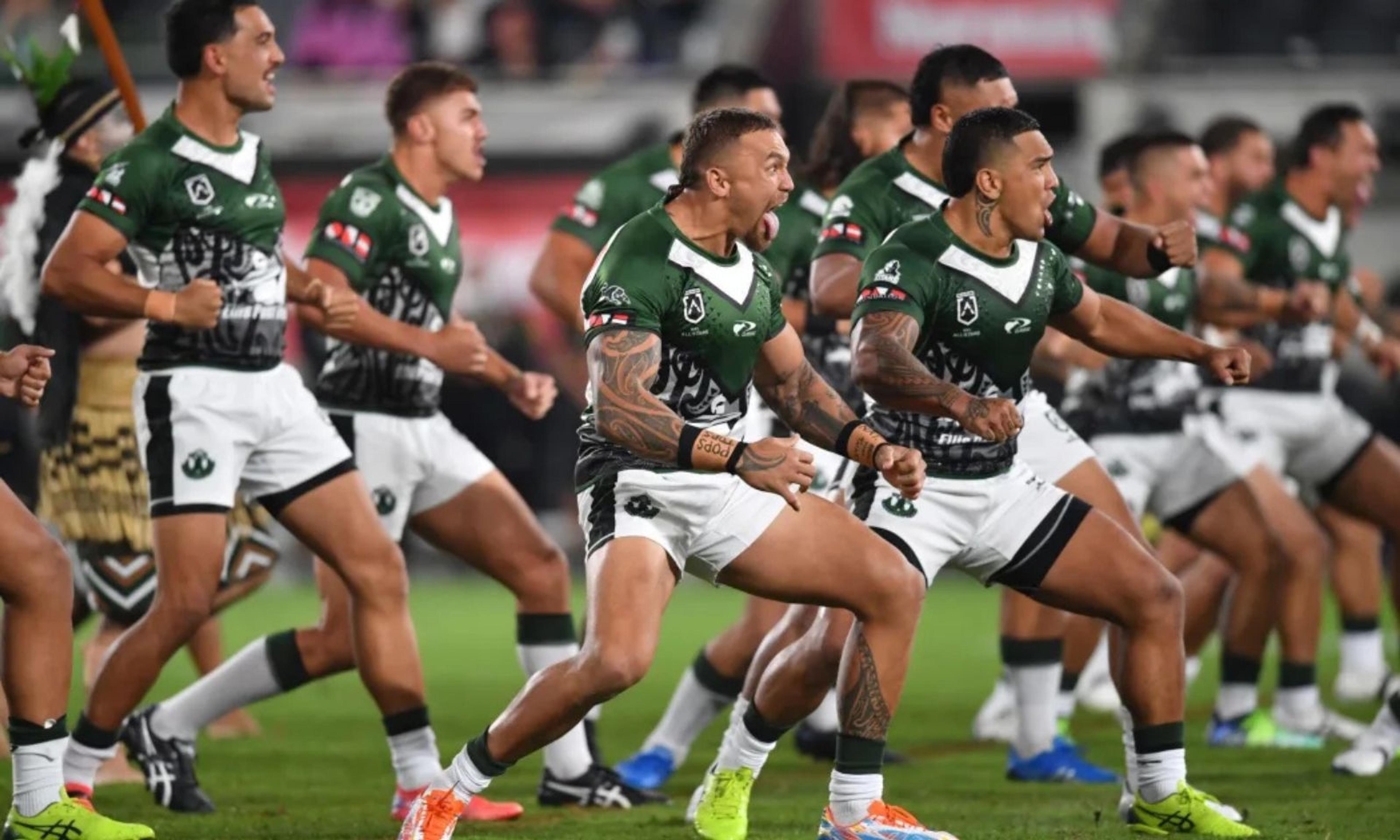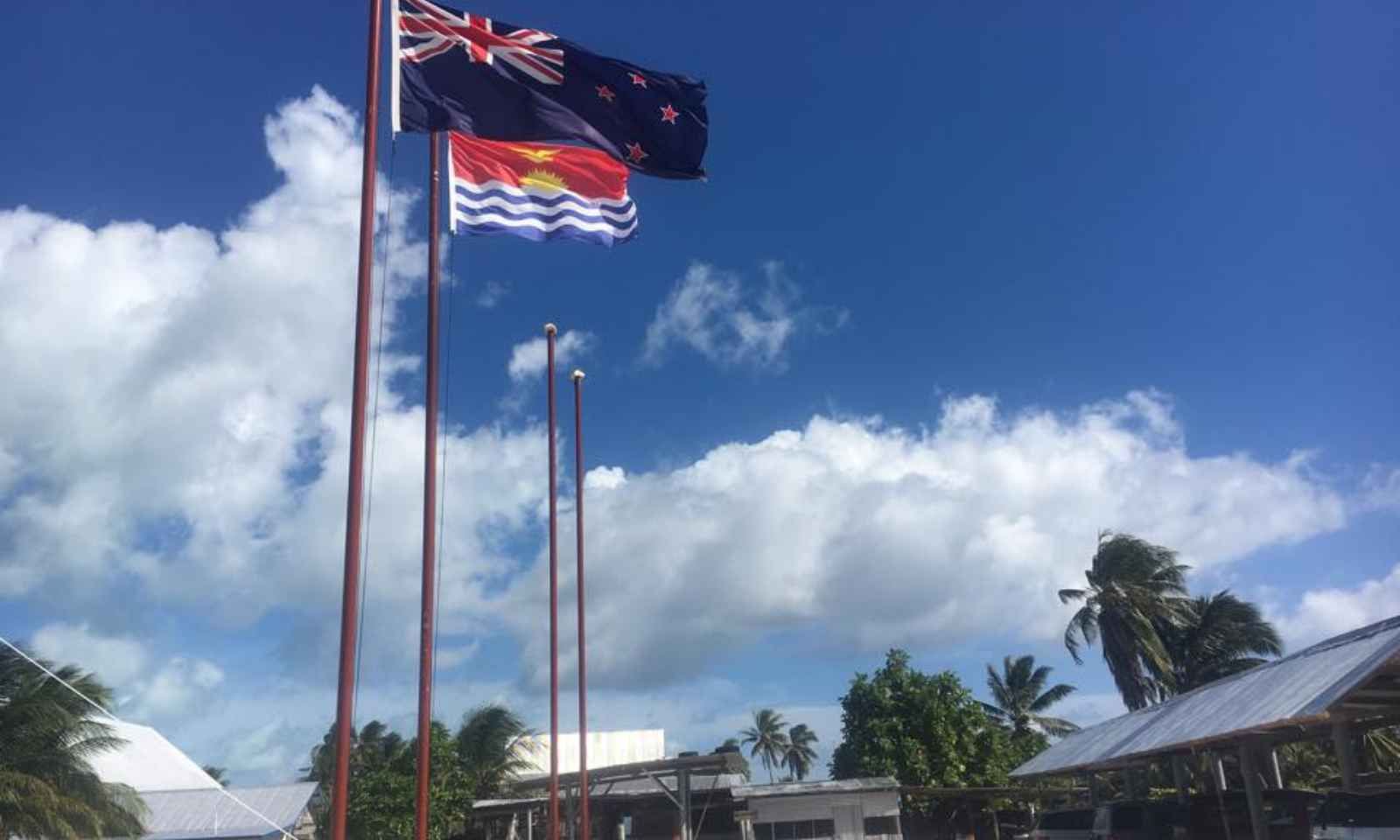

Kiribati President Taneti Maamau and NZ Deputy PM Vaovasamanaia Winston Peters.
Photo/Supplied
Kiribati responds to NZ aid review, calls for diplomatic dialogue
The government in Tarawa has broken its silence on New Zealand’s scrutiny of its $102 million development programme for the Pacific nation.


Time for an Indigenous State of Origin? The All Stars game shows who really powers the NRL



The Kiribati government has officially addressed New Zealand’s review of its $102 million development programme for the Pacific island nation.
This is the first time Tarawa has responded officially. Several Cabinet ministers have defended their leader's decision not to meet with New Zealand Deputy Prime Minister and Minister of Foreign Affairs and Trade Vaovasamanaia Winston Peters.
In a statement, Kiribati emphasised its “cordial relationship” with New Zealand, saying it was based on “mutual respect, understanding, and honest, open dialogue” across bilateral, regional, and international platforms.
Election process and diplomatic timing
Kiribati officials said the country could not host Peters in 2024 due to its election process.
The parliament dissolved in May in preparation for the general and presidential elections, which lasted throughout the year.
The new parliament convened in December to approve the government’s first budget of the new term, making it impractical to host high-level visits during this time.
“It would be highly beneficial if high-level dignitaries have dialogues with the new government rather than the caretaker government,” the statement read.
Kiribati plans to resume high-level diplomatic visits starting in January 2025, a decision reflected in the recent successful visit of Australian Deputy Prime Minister Richard Marles earlier last month.
Watch Kiribati MP Ruth Cross Kwansing's full interview below.
Background history
New Zealand’s decision to review its multimillion-dollar development plan in Kiribati followed the cancellation of Peters’ visit and broader concerns about the lack of high-level political engagement.
Between 2021 and 2024, New Zealand has provided $102m in aid, focusing on health, education, fisheries, economic development, and climate resilience.
Peters previously said that “the lack of political-level contact makes it very difficult for us to agree on joint priorities for our development programme and to ensure that it is well targeted and delivers good value for money.”
While the review's Terms of Reference are still being finalised, MFAT has said that no decisions would be made until the review is complete.
In the meantime, current projects will remain unaffected, and New Zealand continues to reaffirm its commitment to the well-being of the i-Kiribati people.
But, it remains unclear how the review will impact future funding and bilateral cooperation.
Confusion over New Zealand’s visit
The Kiribati government confirmed that New Zealand’s High Commission in Tarawa had notified them about Peters’ proposed visit on 21-22 January.
While Kiribati acknowledged the request, officials said President Maamau was in the southern Gilbert Islands fulfilling national commitments and would not be available to meet the New Zealand delegation.
Despite this, Kiribati had begun preparing for Peters’ visit and was surprised when New Zealand cancelled the trip.
“Tentative preparations started right away with excitement to receive New Zealand’s DPM, just three days after the Australian DPM’s successful visit to Kiribati to commission Kiribati’s second patrol boat provided through Australia’s aid grant to Kiribati.
“A day later, the New Zealand government cancelled its own proposed visit stating that alternative dates were to be explored.”
Kiribati said it was surprised at the "subsequent" media coverage in New Zealand, which framed the cancellation as a 'diplomatic setback'.

New Zealand opened its High Commission in Kiribati in 1989 and is one of a select few countries with a fully staffed, resident diplomatic mission in Tarawa. Photo/NZ High Commission Kiribati
Officials expected the matter to be addressed through diplomatic channels rather than public statements.
“In the diplomatic world, grievances are handled with the exchange of letters, and most likely, the two parties involved will resolve the matter amicably. However, this was not the case, and it is very unfortunate,” the Kiribati statement read.
Peters has responded, acknowledging the challenges of maintaining diplomatic ties with Kiribati.
“New Zealand was able to engage in person with all Pacific Islands Forum members in 2024 at the leader and foreign minister level, with the sole exception of Kiribati,” he said in a statement issued on Monday.
“We regret this lack of foreign minister-to-foreign minister and other high-level contact with Kiribati, despite our repeated attempts, which makes it difficult for New Zealand to make appropriate and responsible decisions on future development assistance there.
“We hope that high-level contact with Kiribati will be possible in the coming months, whether in New Zealand, Kiribati or elsewhere in the region. We will continue to work with Kiribati to try and make that happen.”
Watch Vaovasamanaia Winston Peters’ full interview below.
Kiribati’s commitment to dialogue
Kiribati also clarified reports suggesting President Maamau was unavailable due to a visit to Fiji.
Officials explained that the trip was part of a scheduled stop en route to Nauru’s 57th Independence Day celebrations.
Fiji later elevated the visit to a state visit, emphasising the strong ties between the two Pacific nations.
Despite recent tensions, the Kiribati government remains optimistic about its relationship with New Zealand and seeks a resolution through diplomatic discussions.
“The government of Kiribati remains convinced that, despite this media issue, the strong bonds between Kiribati and New Zealand will enable a resolution to this unfortunate standoff for the benefit of both countries and their peoples.”